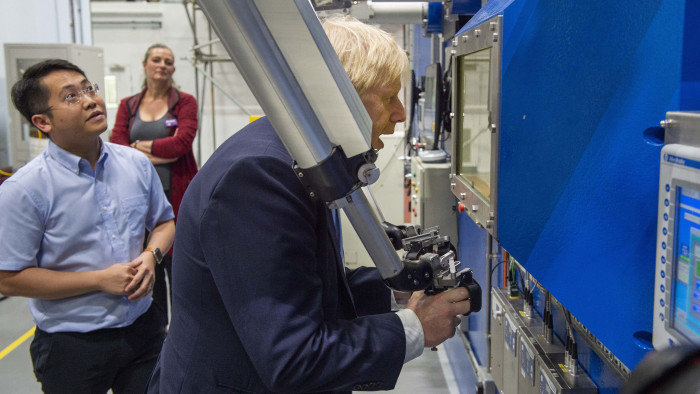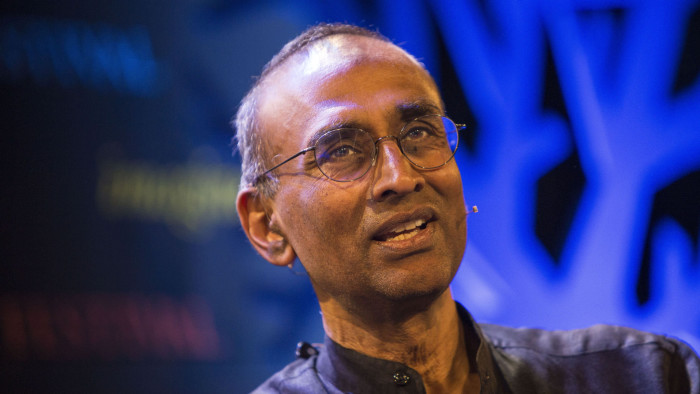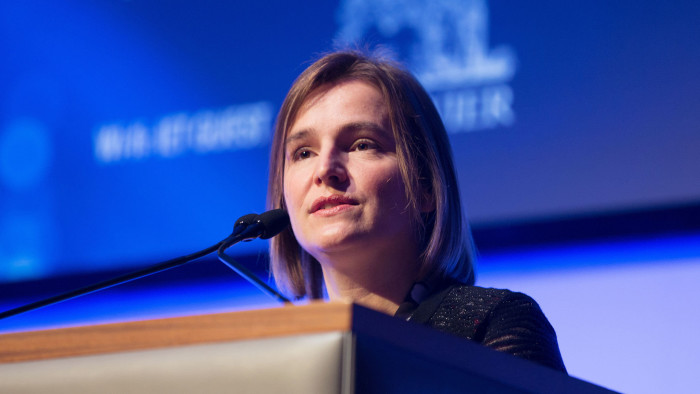How will Brexit hit British research?

Simply sign up to the Science myFT Digest -- delivered directly to your inbox.
UK university researchers overwhelmingly favoured remaining in the EU in the 2016 referendum and, more than three years later, most want the softest possible Brexit if Britain has to leave.
Though they would miss more than £1bn a year that Britain now receives in research and development funding from the EU, the UK government could offset this with an equivalent increase in its own R&D budget. The diminution of international contacts that have blossomed between the UK and the rest of Europe in recent years would be harder to compensate for, however.
“The outward-facing and internationally collaborative nature of the UK’s research and innovation sector is a key factor in our global success,” says Sir Venki Ramakrishnan, president of the Royal Society, Britain’s senior scientific body. “It is right that we review our place on the world stage but we must make sure we protect the elements that are already working well.”
The main EU research programme, called Horizon 2020, has a budget of €74bn over seven years to the end of 2020. The European Commission wants its successor programme, Horizon Europe, to spend €100bn over the same period from 2021, though it remains to be seen whether this ambition will survive budgetary bargaining over the next few months.

The outgoing UK government insisted before the current general election campaign that it would seek to maintain a close relationship with the EU on research and innovation after Brexit. This includes paying to participate as an associate member in Horizon Europe — whose rules have been drawn up to make it possible for non-EU countries to associate with the programme. But whether this will be possible for the UK, and if so in what form, remains to be seen.
“Attempting to replace Horizon Europe with domestic funding streams of similar financial value will at best leave us standing still — and likely see us take a step backwards, with a significant dent to relationships with our European neighbours who have been our fastest-growing collaborators in recent years,” says Sir Venki.
Analysis by the Royal Society confirms anecdotal evidence that anticipation of Brexit is already reducing the flow of European funding to British researchers, even while the UK is still in the EU. The country’s share of Horizon 2020 funding fell from 15.8 per cent (€1.49bn) in 2015 to 11.3 per cent (€1.06bn) in 2018.
While the success rate for UK applications has remained steady — undermining the idea that the referendum result might have prejudiced the EU’s grant-givers against the UK — uncertainty about the future has reduced the number of researchers applying for EU money to work with British scientists or in Britain. Reassuringly, however, the most prestigious science grants, awarded by the European Research Council, show the smallest decline in UK share, from 21 per cent to 19 per cent.
Looking beyond Brexit’s big shadow, the current Conservative government has been strikingly supportive of science and research funding. “There is more enthusiasm for science in Number 10 than we have seen for a long time,” says Sarah Main, executive director of the Campaign for Science and Engineering.
“The prime minister [Boris Johnson] has been keen to associate himself with science on the front page, from his inaugural speech peppered with glowing references to UK science, followed by bold announcements on research funding and skills.”

If the Conservatives are re-elected next month, their proposals in last month’s Queen’s Speech are likely to be implemented.
The ambition to raise the country’s investment in research and development to 2.4 per cent of GDP (from around 1.7 per cent now) has been government policy for more than two years, but the commitment to make the UK “a global science superpower” shows the influence of the prime minister’s adviser Dominic Cummings, a science and technology enthusiast.
In particular, the proposal to set up a funding agency for “emerging fields of science and technology” reflects Mr Cummings’ well-known admiration for the US Defense Advanced Research Projects Agency (Darpa), on which it would be “broadly modelled”.
Alice Gast, an American chemical engineer who became president of Imperial College London in 2014 after several leadership roles in US higher education, takes a “generally positive” view of the British scene, including the way the various public funding agencies were brought together two years ago under an umbrella body called UK Research and Innovation.
“The UK has been good at supporting research,” she says, “though we need to figure out how to maintain our international collaboration after leaving the EU.”
Universities & Innovation
The higher education sector generates lots of intellectual property. We look at how universities, businesses and governments are trying to cash in on it.
Robots rush in where humans fear to tread
University innovators are creating machines that are at home in extreme environments
Cambridge science parks attract record funding for ‘spinouts’
University-based businesses thrive but ‘Silicon Fen’ faces growing competition
Subscribers can receive alerts when new content is published in this series by following ‘Innovation’ with myFT.
But Prof Gast adds that UK universities could do more to bring in funding from non-government sources such as charities and companies. “Corporate funding and relationships are not as strong here as in some places in the US,” she says. “We need to think more about how to create an entrepreneurial environment.”
Philanthropic investment is helping Imperial to build up its new campus in west London. Following a £40m donation by cement manufacturer Michael Uren to set up a Biomedical Engineering Hub there, two recent donations of about £25m each are helping to establish a new School of Public Health on the White City site.
First Marit Mohn, whose fortune came from her family’s Norwegian marine engineering business, gave £25m to set up a Centre for Children’s Health and Wellbeing. Then Imperial announced last month a similar donation from the charity of the Jameel trading family in Saudi Arabia — its first to a UK university — which will fund an Institute for Disease and Emergency Analytics.
“There are many philanthropists who will be able to use the strengths of UK universities to make a tremendous impact around the world,” Prof Gast says.

Comments